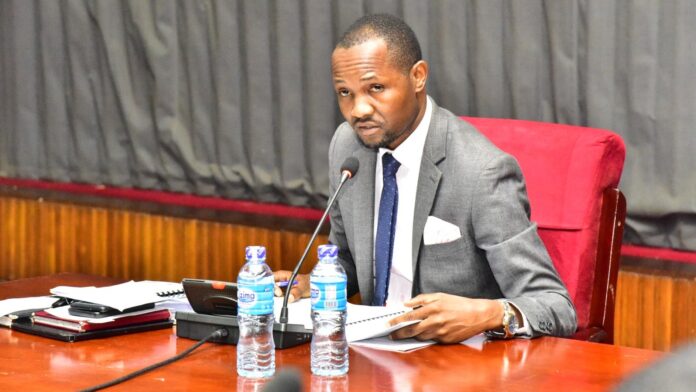
The Members of Parliament (MPs) on the Committee of Commissions, Statutory Authorities, and State Enterprises (COSASE) have expressed concerns about the Uganda People’s Defence Forces (UPDF) entering into private security business, saying that this might lead to the commercialization of Uganda’s security at the expense of the poor people.
According to Allan Mayanja, the MP for Nakaseke Central, on Friday, July 5, 2024, the concerns followed media reports in July 2023 that the Army’s investment wing, the National Enterprise Corporation (NEC), was venturing into the private security business. This prompted him to ask Maj Gen James Mugira, the NEC Managing Director, to explain whether such a move wouldn’t compromise national security and under what legal framework the Army was to operate the said business.
“In line with your responsibilities as NEC, we saw you also had a private security company providing security to Ugandans; doesn’t this contradict Article 210 of the Constitution that requires the UPDF to provide security to all Ugandans?” Mayanja questioned.
In his response, Maj Gen Mugira informed the MPs that the private security firm established by the NEC isn’t run by the UPDF but was only established to assist veterans.
“The incorporation of NEC Security Services Limited is in line with the mandate of NEC to establish subsidiaries to carry out business. The business of NEC security isn’t executed by the UPDF but rather by NEC. We don’t deploy personnel from the UPDF; we recruit veterans from the UPDF, police, civilians, and also returnees that have been operating in countries like Iraq. So those form the core of the manpower,” Maj Gen Mugira noted.
He further said, “We are registered and are under Uganda Police. The arms we use aren’t the ones ordinarily used by the UPDF, but are semi-automatic rifles that are used by other private organizations. The UPDF doesn’t pay salaries for those workers, so basically, we are operating within our mandate as NEC.”
The Mawokota South MP, Yusuf Nsimbabi, however, wondered how the UPDF expects the public to differentiate between serving and retired soldiers.
“Beyond the technical support you are giving to Ugandans, there is confusion in the public because a veteran is seen almost as a serving officer; you can’t differentiate between a veteran and a serving officer in the general public. I think this specific business, in my opinion, is causing a bit of confusion. For me, if I had a private security company, you wouldn’t allow me to employ a veteran because the assumption is that the veteran is still under the control and command of the regular army,” Nsibambi asserted.
Charles Bakabulindi, the Workers’ Representative, also expressed discomfort about having retired soldiers serve in UPDF’s private security firm due to the difficulty of differentiating them from serving officers.
“Assuming the retired officer is a Brigadier or Colonel, does he deserve respect and a salute to his title from an active junior serving soldier when they meet somewhere?” Bakabulindi asked.
Media reports show that UPDF, through its commercial arm, the National Enterprise Corporation, has already established a private security company called NEC Security Services Limited (NSSL). The move has drawn mixed reactions, with the opposition questioning its legality.
NSSL recently passed out 98 trainees, including retired UPDF officers, to provide security for critical national assets such as telecommunications and oil and gas infrastructure, a decision for which Maj Gen Mugira said the security needs have been unmet by existing private security firms.














